Prompt
- Evaluate your own contributions to seminar based on this rubric.
- Explore your own learning inside and outside of class in a brief reflection paper (1-2 pages).
Response
Prompt
Response
Check-in 3
Integration: Start to think about how this internship integrates with your overall learning experience this quarter. Where did your courses inform your internship? Where did your internship inform your class experiences?
Response
My internship has been a culmination of all of most of my LDT courses since I am seeing firsthand what it means to create a full online course at VPTL. Even though most of the work I have been assigned is more towards the labor intensive side of things, as opposed to the intellectual creation of the material, being in touch with all the content and seeing what the process looks like in terms of precise phrasing, types of assessments, and the choice of media has enlightened me significantly.
I think that one of the key takeaways from the internship so far is that my initial intuition that creating an online learning experience is quite challenging and a large task, not only in terms of creating content, but organizing it, keeping it up to date, revising, and updating it. Another great takeaway is that video is not always the best medium – it is used sparingly in the course I’ve seen so far. Video is completely linear and thus time consuming to find specific content after having watched it. Text is simply faster to go over, to find specific items, and to recall.
Internship Reflection
Write 3-4 pages covering the following topics.
Description: Briefly describe the organization, its mission, and your role there. What was your contribution?
Reflection: Consider the entire quarter’s internship experience. What have you learned in terms of new skills and knowledge areas through your work? How have you grown as an individual?
Integration: Consider the entire quarter’s courses and discussions. What ideas and lessons from your courses can be applied to your internship? What lessons from your internship can provide further insights to your courses? Where do these agree? Where are they in conflict?
Next Steps: If you plan to remain with this organization the next quarter, what could be improved to further enrich your experience? If you plan to engage with a new organization, what qualities will you look for in your next internship?
Response
Description:
My internship this quarter was at Stanford’s Vice Provost for Teaching and Learning (VPTL). It “promotes and advances the vibrant, intellectual endeavor of teaching and learning at Stanford.” In other words, it takes care of all the infrastructure and software needed for teaching and learning at Stanford with items ranging from the projectors, computers, and white boards in a classroom, to the online platforms students use such as Canvas for example. The department I was working in is called the Digital Learning Strategy (DLS) Group, which “collaborates with faculty throughout Stanford’s schools and research centers to spur innovation in the development of new and effective digital learning content and activities.”
Within the DLS group, I worked directly with one of their instructional designers working on a course aimed at Stanford professors who want to create an online course. My role was to update content on the OpenEdX platform that was originally created in Google Docs format, create some occasional pieces of content, and to create an onboarding document for the future interns. This was an ongoing activity that turned out to be a course for a new intern – a course they must take when starting to work there.
Reflection:
The internship experience taught me about how much time, effort, and cognitive load is necessary to produce an online course. I had my suspicions before hand, but the internship validated them. The process involves several face-to-face meetings and endless revisions, commenting, proof-reading, and fine tuning of word documents, videos, assessments, and other pedagogical materials.
I believe that the most interesting thing I’ve learned is that video, the “base” of most online courses, is not actually always the best medium to deliver content. Reading is often faster and efficient to do so, not to mention that you can search it, copy and paste it, and simply glance over it to recall the general concept of it. Video does have it’s power in engaging the audience, adding emphasis and emotion to the content, and being apparently easier to do than read.
Integration:
This quarter I took Engineering Education and Online Learning with Candace Thille and we used a lot of the content of the online course I am working on at VPTL – Designing Online Learning Experiences at Stanford (DOLES). The course is based on the Creating Effective Online and Blended Courses, course, created by the Open Learning Initiative, founded by Candace Thille. So there was a direct link to the content, and I could see how the theory was applied in the design of the course itself. Even though I was not actually creating content for the course, I could observe the thought processes that went into it through the comments and edits done to the source material on Google Docs.
One big part of the internship was also dealing with licensing and copyright requirements to publish a course online. Every image, graphic, sound bite, simulation, and code must be accompanied by a full description of where it came from, under what license it is being utilized, and authorizations for it to be used in that particular context. It was a side of the instructional design process that I had not given the appropriate weight for previously. This is a topic that maybe could have been mentioned more explicitly in our courses at LDT.
In general I felt that there was a good integration between my internship and the course load at LDT as far as the context I was in goes. In terms of practical application of what I learned, there was little integration. Understandably I was not given any authoring tasks where I was to create content for the course. I was given mechanical tasks that had to be completed such as verifying if the content on OpenEdX has been updated with the latest changes made on the Google Docs. On the other hand I was able to contribute significantly to improving the general workflow and organization of the documents required to build a course. My project management skills came into play and we restructured things like folder structures, naming conventions, versioning, and publishing procedures.
With this in mind I think that VPTL should create a course for LDT which involves content management, content organization, online course planning, and even content production. They have a very talented staff and amazing resources that we could potentially use during the course. It could be an online-lead blended course that actually started in an online environment and ‘gained’ a face-to-face component to it… we would be “reverse flipping” the course…
Next Steps:
For the Summer quarter I will continue at VPTL and we already have some extra projects for me to work on. Now that they have seen my work and that I will be dedicating longer hours to it, I am going to engage with some more meaningful tasks. The main project will still be the new release of the DOLES course, due in the end of September. There’s still a lot of content being produced over the summer and it will need to be uploaded onto OpenEdX.
In parallel, I am going to start to work on a course to inform people about Stanford Domains. Stanford offers students and professors a host of services to create websites, host web services, and other online tools for free yet no one knows about them and/or don’t know how to use them. I am also going to create a comparative report on the different LMS Stanford uses, work with the engineering team to create some new features for OpenEdX. Last but not least, it seems like I will be creating a course for using Canvas with my boss.
Should be a good summer 🙂
Wow! It’s practically over! Summer quarter and then graduation! Looking for jobs, opportunities, where to live, and so on! Good perspectives but also a lot of decisions to make and factors to consider…
Now rushing to finish all the final reports and projects!
Reading:
Ambrose, 2010, “How Learning Works”
“Conclusion: Applying the Seven Principles to Ourselves” and “Appendices”
Summary:
Loved the very practical and direct appendices and the acknowledgment of how complex (but not impossible) to teach well and considerately. Some of the strategies are quite simple to implement but with potentially great impacts for the learning and quality of work produced by the students.
Notes:
Reading:
Ambrose, “How Learning Works.”
Chapter 7: “How do Students Become Self-Directed Learners?”
Summary
Growth mindset keeps coming to mind obviously, along with the notion that metacognition must be taught starting much earlier than college. But to do so, one must focus on first teaching it to the professors and teachers, who most likely were never taught the topic either. Beyond simply teaching about it, one must recognize that self-monitoring, self-evaluating, planning and so on, are cognitively demanding tasks that must come with high motivation to be adopted by someone who is already overloaded with their practice, research, and work. The same applies to the students who on top of learning the content, they must also think about their own learning. Therefore, we should strive to reduce the load of useless-once-memorized-its-lost content and increase the load of preparing children and young adults to learn and function in real life.
Notes
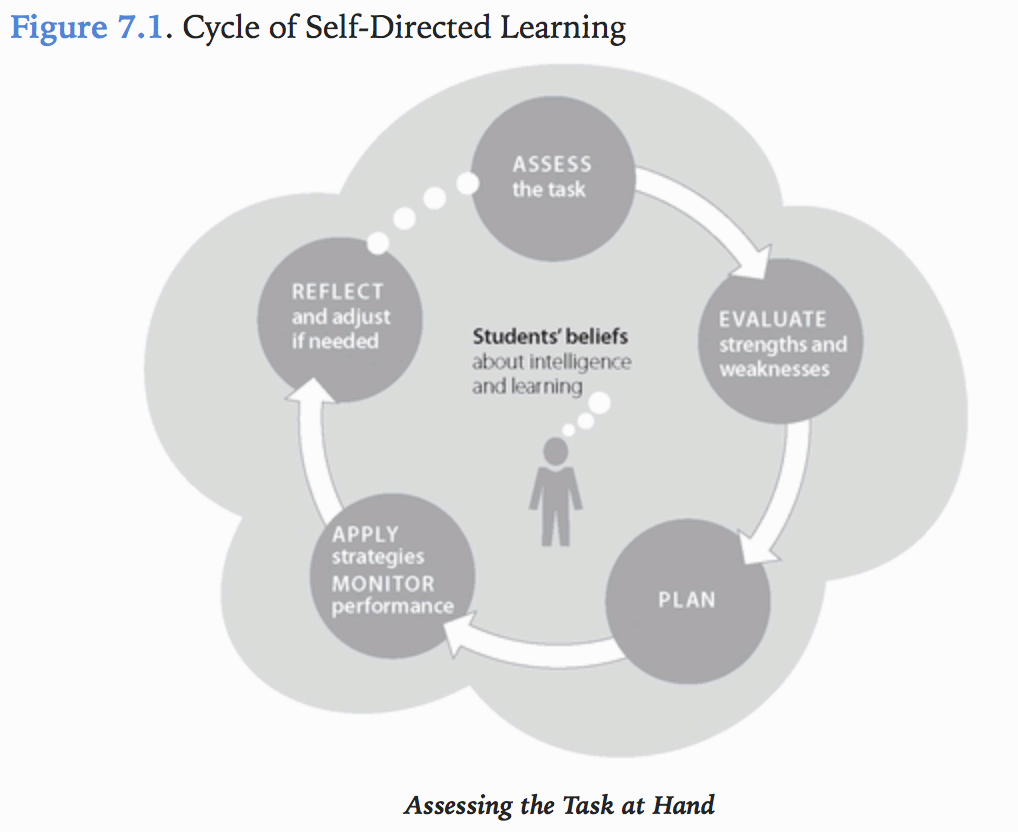
Provide Performance Criteria with the Assignment
Give Early, Performance-Based Assessments
Provide Opportunities for Self-Assessment
Have Students Implement a Plan That You Provide
Have Students Create Their Own Plan When
Make Planning the Central Goal of the Assignment
Provide Simple Heuristics for Self-Correction
Have Students Do Guided Self Assessments
Require Students to Reflect on and Annotate Their Own Work
Use Peer Review/Reader Response
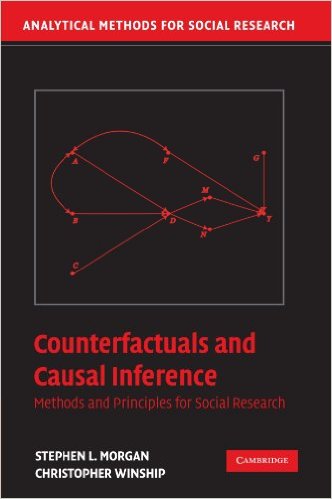
This week we discussed “Hypothesis Testing Methods at Scale” and “Causal Inference” based on the reading of “Counterfactuals and Causal Inference” by Stephen Morgan and Christopher Winship (Cambridge Press).
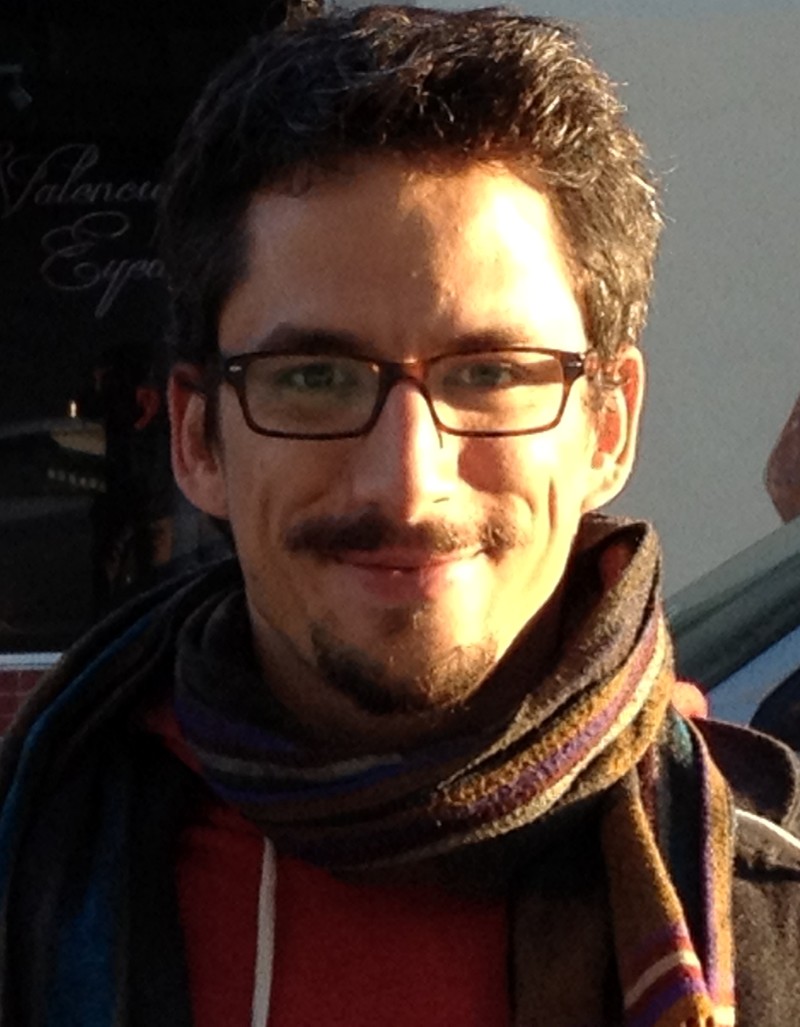
We had the opportunity to hear from Engin Walter Bumbacher on “Remote Biology Laboratories for Model-based Science Inquiry”
“Recent curricular frameworks (NGSS, 2013) are pushing for scientifically more authentic inquiry-based curricula that integrate relevant scientific practices revolving around data, models and theory. However, there are various obstacles to the classroom implementations of such a view of inquiry that range from logistical, structural and economic constraints (Abd-El-Khalick et al., 2004) to teachers’ knowledge and beliefs about science (Wallace & Kang, 2004). I argue that another important obstacle is the lack of proper learning tools and environments that integrate all the practices, yet that are robust enough to be used within the requirements and constraints of a science classroom. I will present a technological framework that provides an alternative approach to these types of labs; it combines remote biology labs with a modeling interface to enable inquiry-based activities that promote more authentic practices in line with the bifocal modeling framework (Blikstein, 2014). I will show results from a study implementing a first version of this technology in a middle school science lab. I am looking forward to the questions and discussions on these ideas.”
Ambrose, 2007, Chapter 3: “What Factors Motivate Students to Learn?”
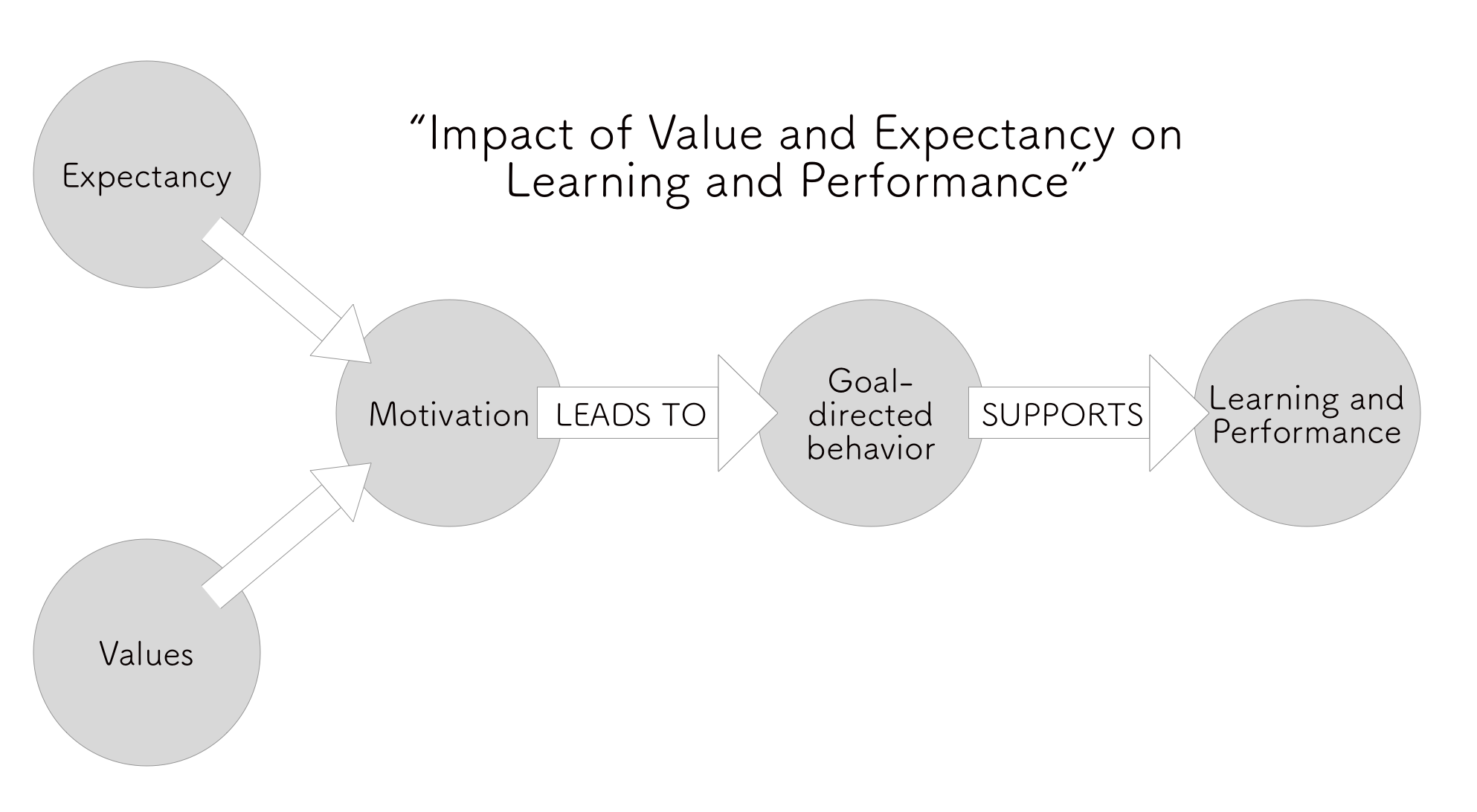
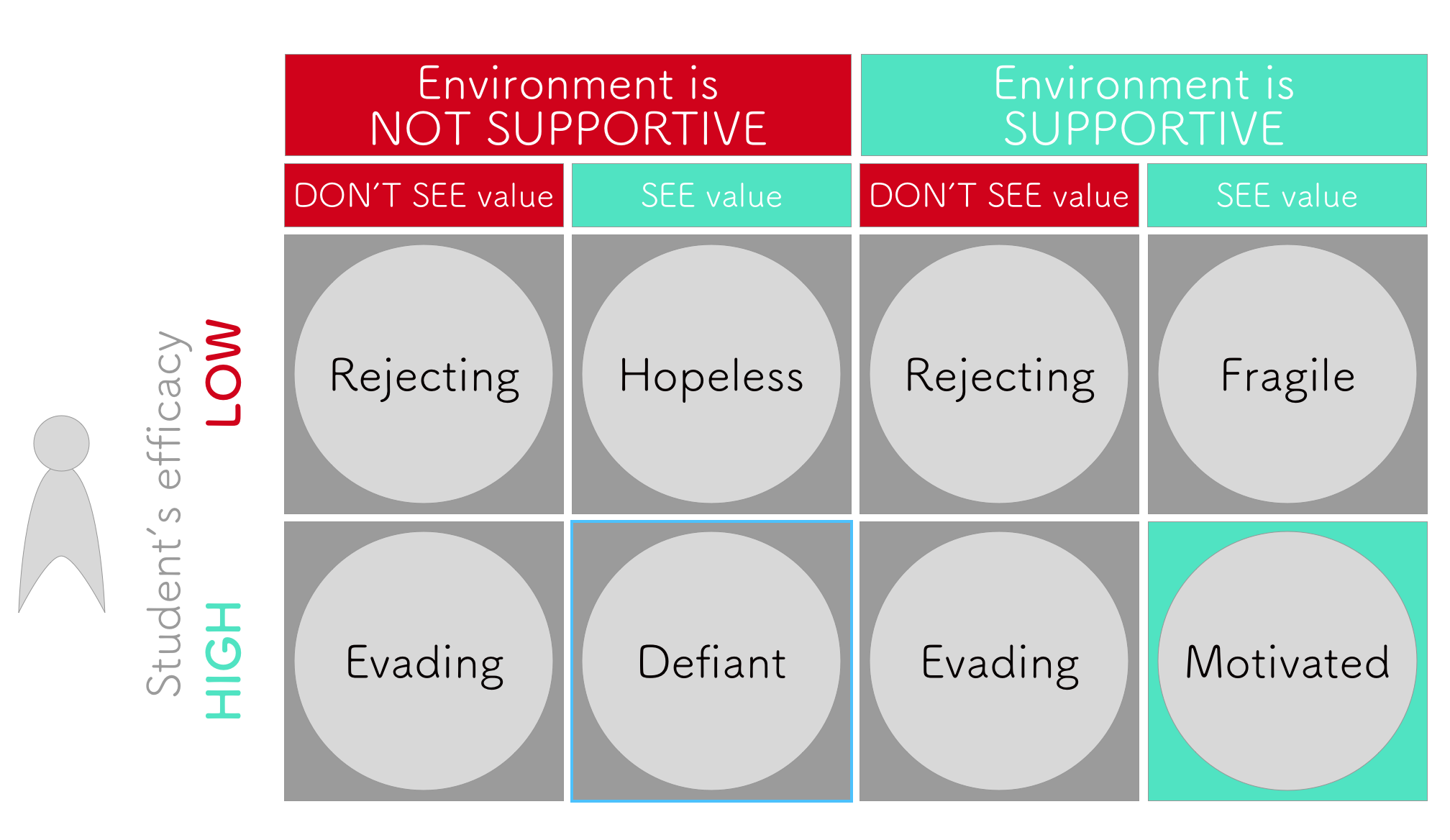
BJ Fogg, 2009, “A Behavior Model for Persuasive Design”

BJ Fogg, 2009, “The Behavior Grid: 35 Ways Behavior Can Change”
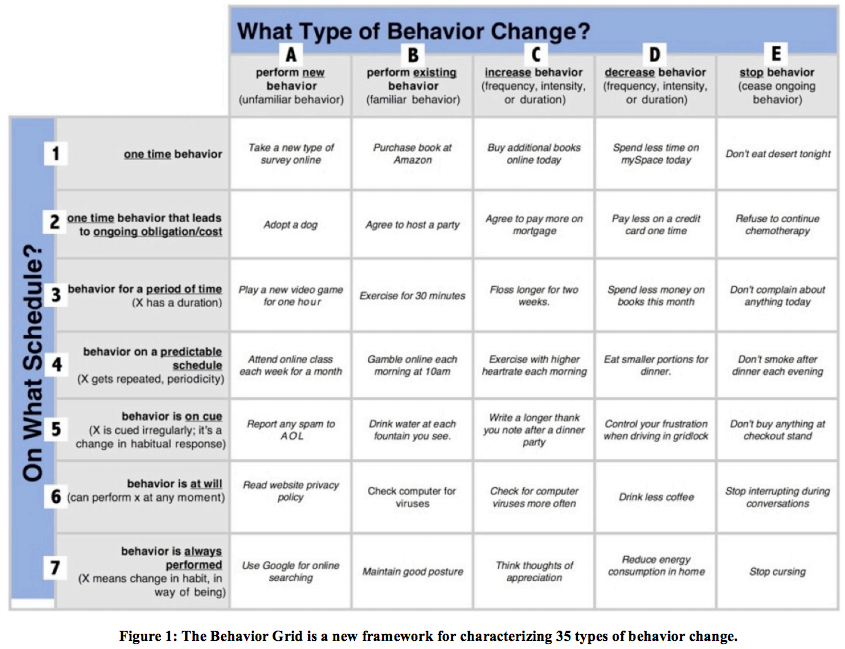
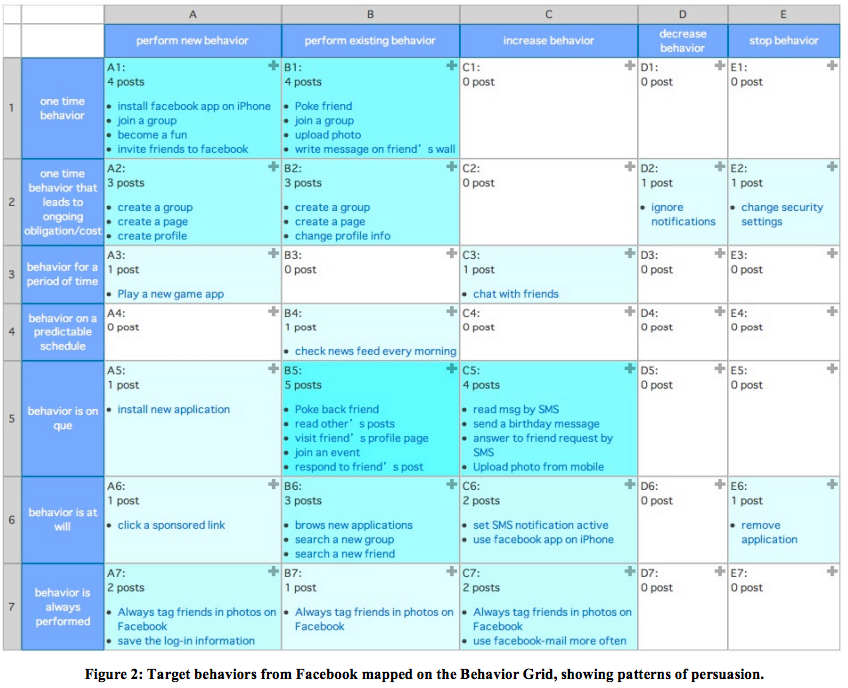
Finally catching up with the homework and blog posts… here are the assignments for the last 2 weeks:
EdTech Game Critique Assignment
Empirical cognitive task analysis
Learning Outcomes
Assessment
Readings
Jan L. Plass, Bruce D. Homer & Charles K. Kinzer (2015) Foundations of Game-Based Learning, Educational Psychologist, 50:4, 258-283
Response:
I highly appreciated the reading in the sense that it does not claim to have found a holistic and generalizable theory or framework for game-based learning. It comprehensively analyzes the several aspects or considerations one takes (or should take) into account when designing a game-based learning experience, and concludes that no single approach is the most effective or essential. It also states that when designing, one can use several learning theories and several game design aspects to enhance the experience.
“In this article we argued that the integrated viewpoints of cognitive, motivational, affective, and sociocultural perspectives are necessary for both game design and game research in order to fully capture what games have to offer for learning.” (Plass et al, 2015)
I particularly enjoyed the definition of gamification which reduces it to a gimmicky buzz-word. Like most buzz-words, it is over and incorrectly utilized – with the best intentions of course – but creating a false sense that any process or interaction can be magically transformed into a game and thus increase customer satisfaction, retention, or engagement.
“What exactly is meant by gamification varies widely, but one of its defining qualities is that it involves the use of game elements, such as incentive systems, to motivate players to engage in a task they otherwise would not find attractive.” (Plass et al, 2015)
“Consider as an example the gamification of math homework, which may involve giving learners points and stars for the completion of existing activities that they con- sider boring. Game-based learning of the same math topic, on the other hand, even though it may also include points and stars, would involve redesigning the homework activi- ties, using artificial conflict and rules of play, to make them more interesting and engaging.” (Plass et al, 2015)
Ambrose, Chapter 6 (“Why Do Student Development and Course Climate Matter for Student Learning?”)
Response:
This passage only reinforces the notion that being a classroom teacher is one of the most complex and demanding professions around. It really is an art to be able to balance delivering the content in a pedagogically sensible way and manage an entire classroom with very different individuals with particular needs and different interests, motivations, and previous knowledge. There is no silver bullet, but it does not mean we have to stop trying.
Full days!
May 12
Started early at the DMV where I got a renewed temporary license while Homeland Security verifies my legal status in the US… it’s been 5 months… did I do something wrong? Hehehehe
I talked to Max from General Assembly where we discussed how I might help them with their new iOS curriculum and hopefully work more closely in the future.
I then rushed back to school to have lunch and go to work at my internship at VPTL. There I talked to Grace about my future plans and the possibilities of continuing our work there.
Also talked to Paulo, as my advisor, about the changes in my Master’s project… he gave me some great advice and ideas about how to make the project more interesting pedagogically speaking, innovative, and using technology to support the process.
May 13
Long bike ride in the morning. Caught up with another cyclist and we swapped drafting off of each other. Fun!
Arrived late for LDT seminar where we had Mingming talking about prototyping as a form of gaining knowledge about a problem. She is awesome.
The Corine and Omair presented us with a very impressive editing tool – Da Vinci Resolve – FREE!! No compositing though but unparalleled color correction.
Then rushed out to get a Zip car… first try the car I reserved was not there… rushed to another location… the app would not work, or the network… after several app relaunches and network resets I was able to get the car I was standing next to. All this to go to LinkedIn to meet with Eduardo Saito, who I know from way back when we worked at Zip.Net. Great lunch and great conversation.
Stopped by the tuxedo rental place to pick mine up, then spoke to Brian Buttler, friends with Alex while living in Recife. Now he’s living in Miami and thinking about what to do after his Summit Global Education – a study abroad program – he founded. Interested in EdTech… great conversation about the market and the kinds of companies that are being built nowadays.
Then at night we went to the Venetian Ball at Stanford – a formal party with around 1000 graduate students. Pretty much all of the LDT cohort went – great fun!